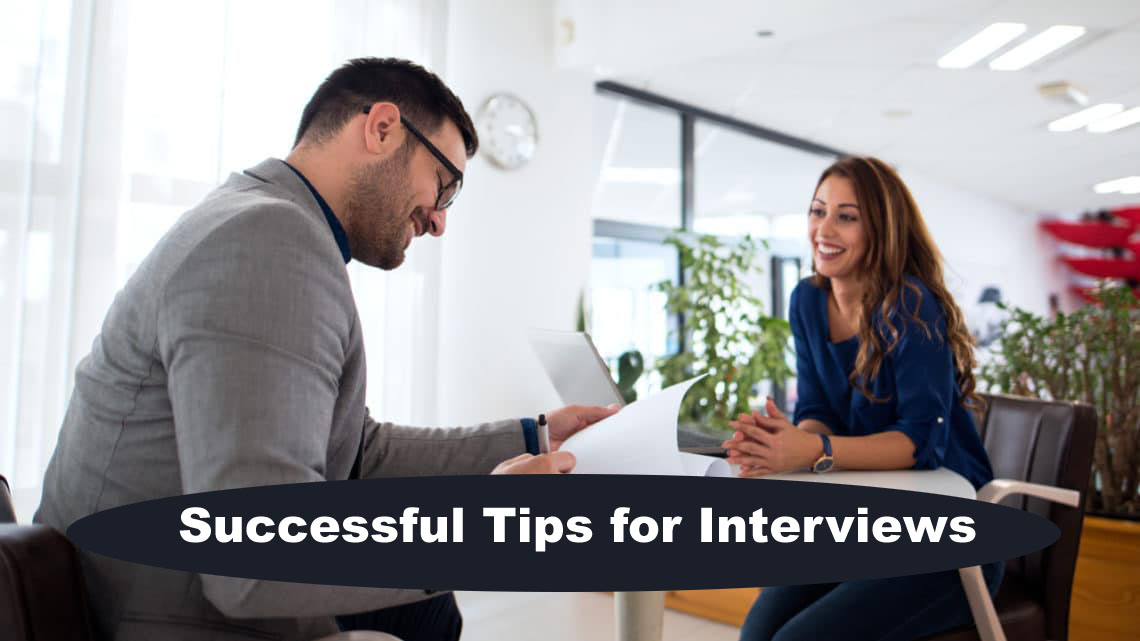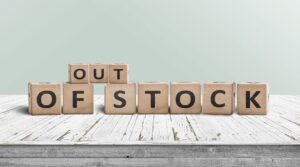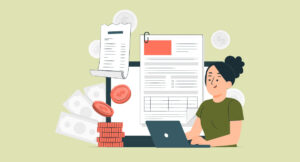Before a job interview, almost every one of us experience anxiety and stress. But, you may perform at your very best if you prepare ahead of time. The measures an applicant takes to get ready and the way they act during the interview can determine whether or not they succeed in the job. Before you get a job offer, you could have to go through several rounds of interviews, so you should prepare for each one properly. You can adhere to certain broad rules that might help increase your chances of impressing a potential employer, regardless of the kind of interview you’re expecting.
The following article will teach you successful professional techniques that will enable you to ace the job interview when seeking jobs.
What is a Personal Interview?
It’s common for recruiters to question regarding a candidate’s prior employment, educational background, professional abilities and qualifications, and career objectives when appearing for job interviews. But there will be some questions all during the interview that are personal. At a personal interview, the candidate and the recruiter typically have a face-to-face meeting or two-way contact. The recruiter’s primary objective is to evaluate a candidate’s prospective fit for the role and the organization. As an alternative, the candidate wants to make an impression on the recruiter and showcase why they are the best applicant for the role and the company.
Why Personal Interviews are important?

Here are the few pointers to help you understand the importance of personal interview.
- One of the most important steps involved in the employment procedure is the personal interview.
- Provides an extensive number of opportunities to the hiring manager and the job applicant.
- Allows recruiters to choose qualified applicants through face-to-face communication.
- Gives candidates a chance to showcase their abilities in an effective manner.
- Enables the interviewer to evaluate your analytical abilities in a manner that is difficult with written assessments.
Successful Tips for Interviews
Take note of these tips to discover how to succeed in your upcoming job interviews.
- Understand the methods of behavioral interviewing
When an interviewer asks you about how you handled previous work-related circumstances, this is known as behavior-based interviewing. Using this strategy during an interview allows a prospective recruiter to gain important insight into how you handle obstacles at work and turn them into opportunities. Making a list of your abilities, advantages, and disadvantages will help you get ready for the interview. Provide an instance where you demonstrated each of these attributes. Your smooth resolution of the issue is observable to the employer.
2. Prepare yourself for an assortment of interviews
Interviews can be undertaken in an assortment of situations and formats by recruiters. You might feel more prepared and confident as you enter for the interview knowing what to expect. A few interview formats are as follows:
3. Telephonic and Video Interview
To ensure uninterrupted interaction during the interview, find a peaceful room. Evaluate the effectiveness of the technology you’re using and get some practice with it before the interview.
4. Group Discussion
A panel of individuals interviews you during a group discussion. Prior to this kind of interview, you could find it beneficial to work on your listening comprehension in addition to rehearsing your responses to often asked questions.
5. Performance interview
To examine your technical skills, the interviewer may assign you a job to see if you have the requisite skills to complete the obligations of your chosen role. Strive improving your skills before to the interview so that you can properly demonstrate them to the business.
6. Out-of-office interview
For a lunch or dinner interview, arrive a few minutes early. Before you arrive, look over the restaurant menu online and read about the type of restaurant you intend to attend to help you decide how to dress.
7. Take time to practice
Practicing for a job interview will constantly lead to improvements. Ask one of your family member or friends to do an interview with you and provide feedback. You may also record oneself answering the sample questions. Examine how you deliver answers and pay attention to your gestures along with other nonverbal cues, such as eye contact, which is also an essential part of interviews.
Top Interview Questions and Answers

Explore common interview questions that will assist you practice summarizing your professional experience and expressing your enthusiasm in the position you’re applying for. Here are some of the most common interview questions:
- Tell us about yourself.
- What are your strengths and weaknesses?
- How do you deal with pressure or stressful situations?
- Describe yourself in three to five words.
- Do you prefer working independently or on a team?
- Why did you leave your last job?
- What do you know about the company?
- Where do you see yourself in five years?
- What was the last book that you read?
- How do you deal with criticism?
- Who has inspired you the most and why?
- What are your career goals?
- What are your salary expectations?
- Do you have any questions for me?
Gather company details
Get information about the company’s culture and work environment by connecting with former staff members. To gain an understanding of the company’s culture if you don’t know anyone who works there, check out their website and social media profiles. Another option is to check third-party websites with employee reviews of the company. Prior to the interview, try to find out more information about the company so that you can prepare well and can ask relevant questions.
Which outfit to wear?
The first impression is the last impression. Making a good first impression can therefore be ensured by the way you dress. Your attire, whether traditional or western formal, should seem well-groomed. Be sure your clothing is wrinkle-free and free of holes by paying attention to the little things.
What to Carry for the Interviews?
A list of things you can bring for a successful interview is as follows:
- A hard copy of your résumé with references listed
- Publications and work samples to present to the employer
- A set of questions to ask the employer
- A pen and notebook for taking notes
Be Yourself
Although preparation and practice might help you have a great interview, when you connect with your interviewer, it’s better to just be yourself. Be optimistic, confident, and strong, but also be direct and precise in your communication. When responding to questions, concentrate on being honest and providing instances from your professional and personal experiences.
Don’t forget to follow up
After interview, write a quick email expressing your gratitude to the employer for their valuable time. Important points that you brought up during the interview, such as your anticipation for the job role and company, can be restated. Employers may find you more easily after doing this and get in touch with you to discuss further steps.
Last but not least, in order to make an impact that endures on the recruiters, you must respond to each question with confidence and enthusiasm. However, it does help to practice beforehand. When the going gets tough, thorough preparation can help you create a sense of control and confidence that will make you stand out as the best candidate. Wishing you luck in the interviews and hope you have a great performance.





